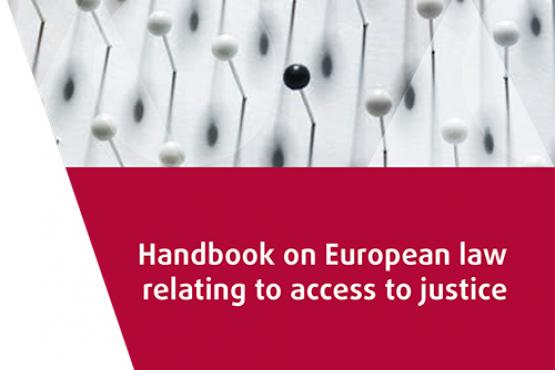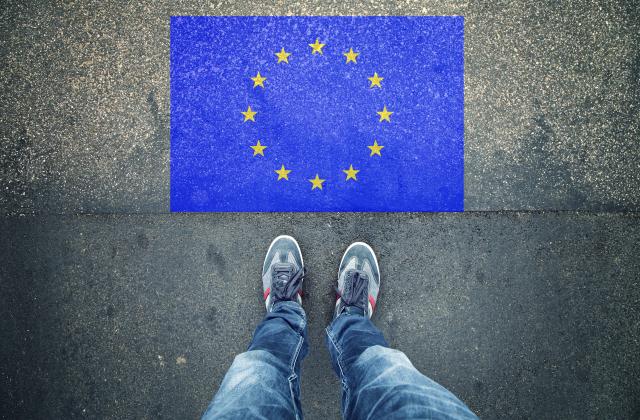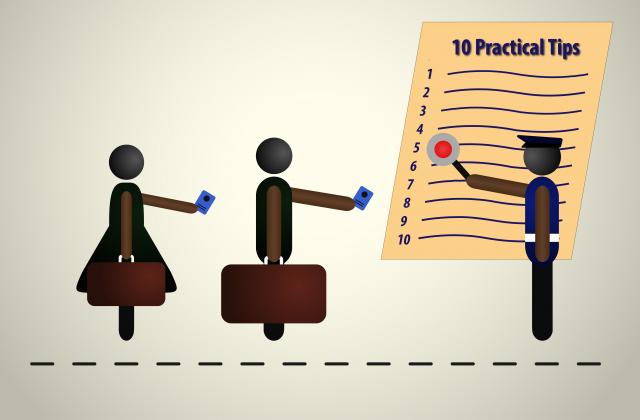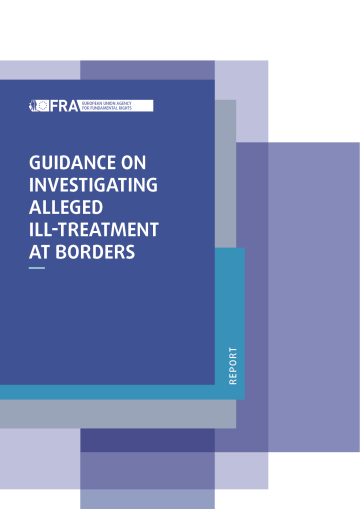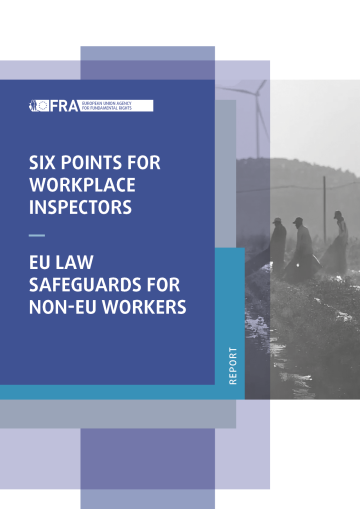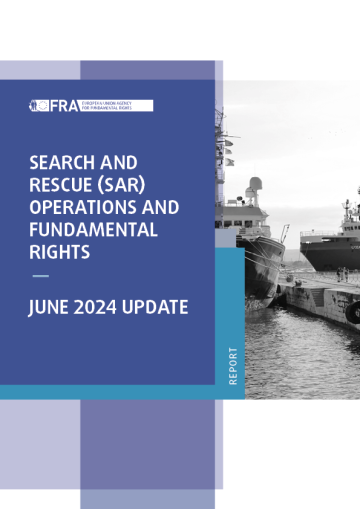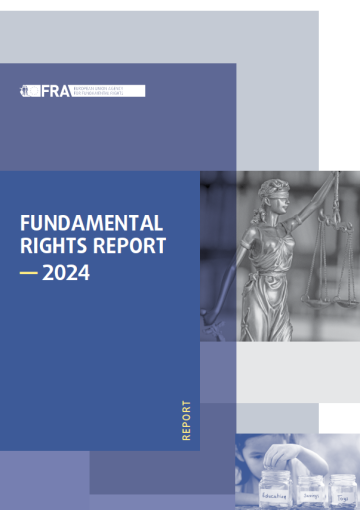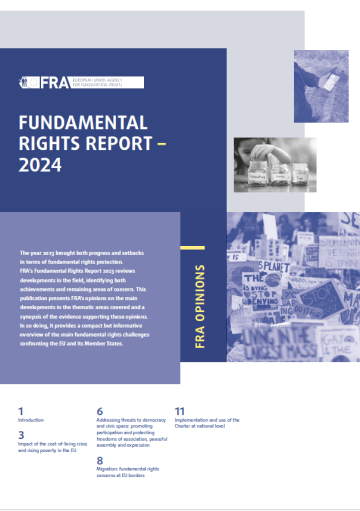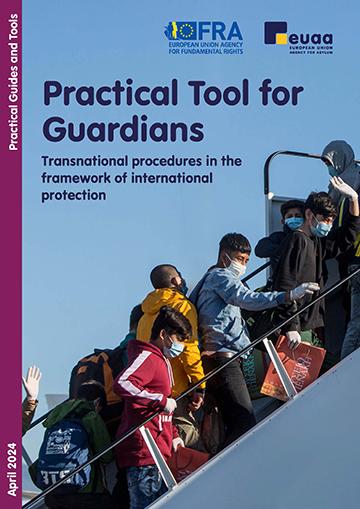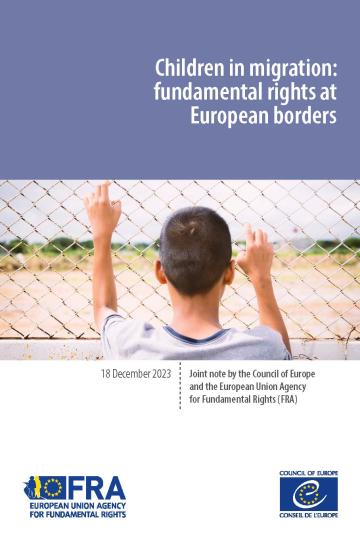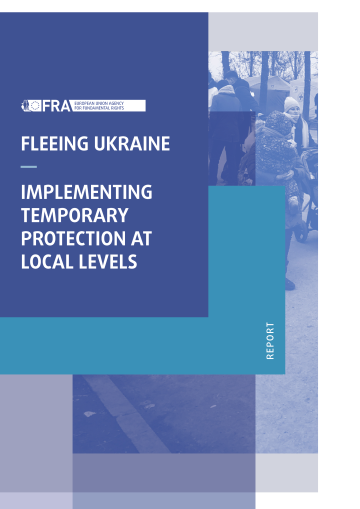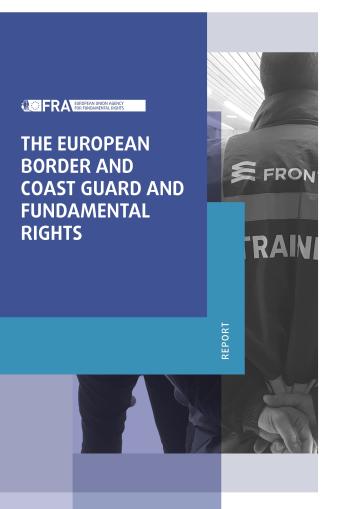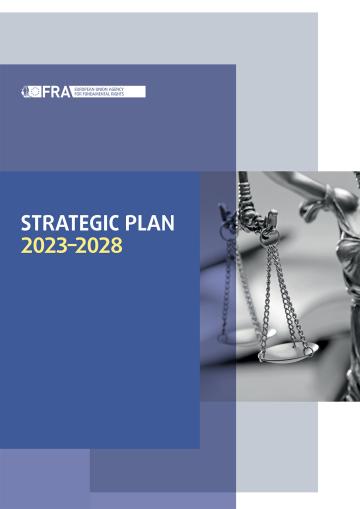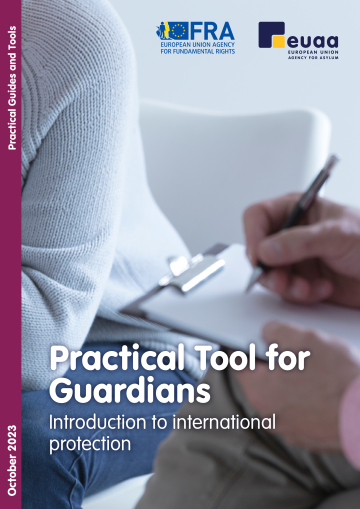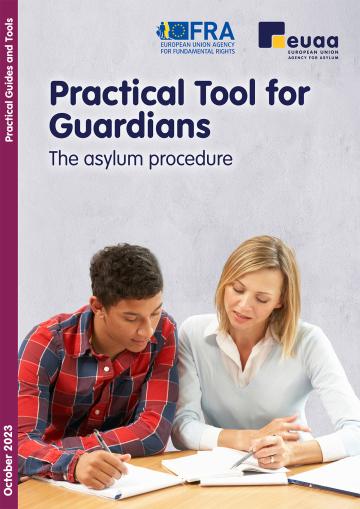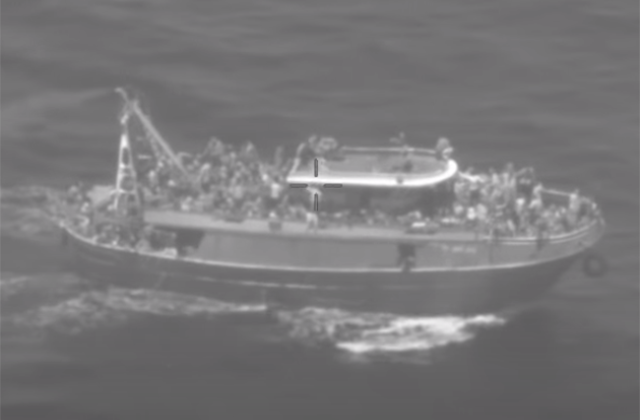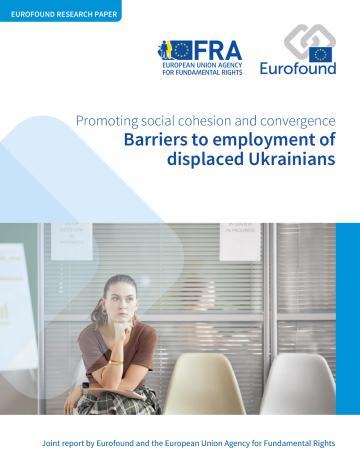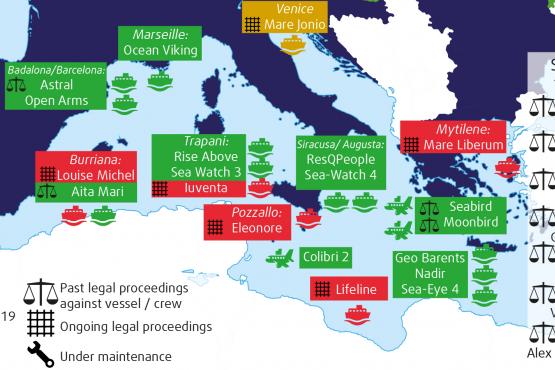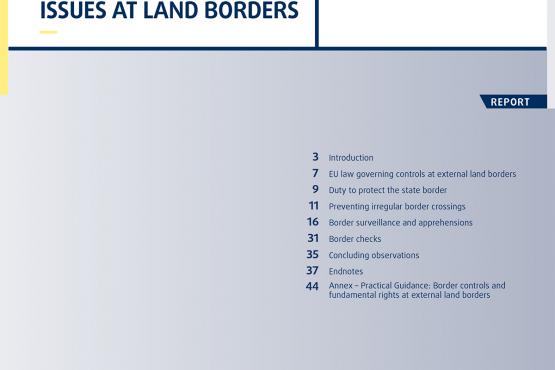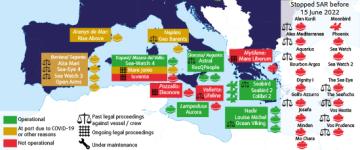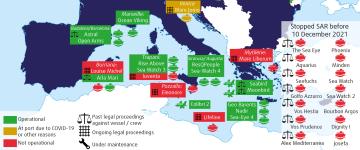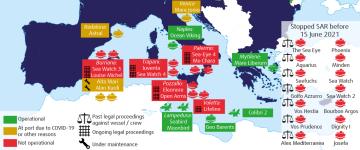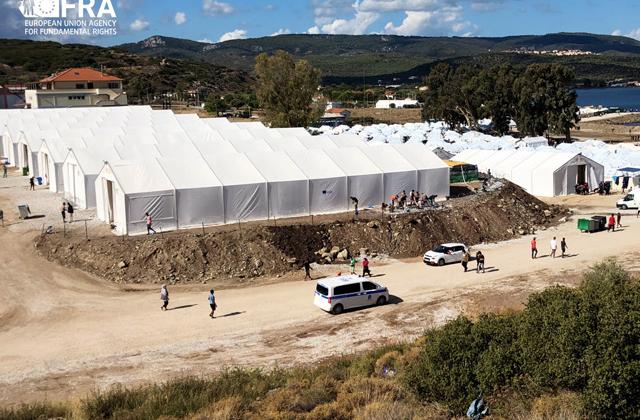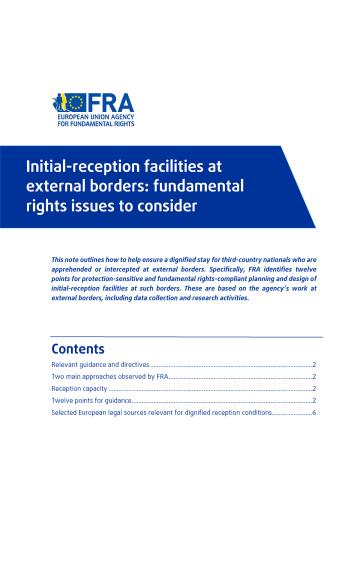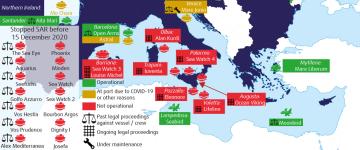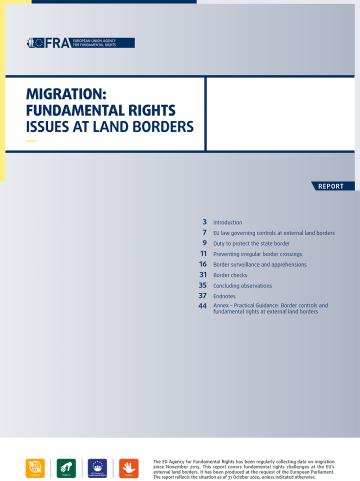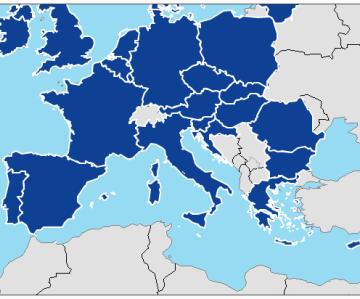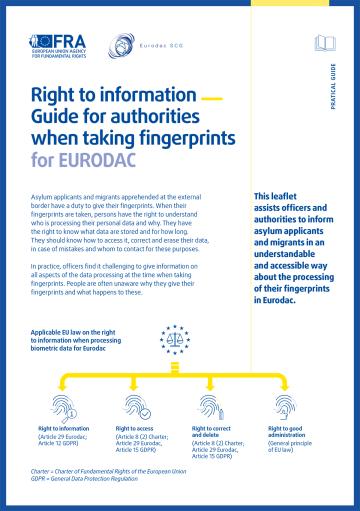Mécanismes nationaux de suivi dans le cadre du pacte de l’UE sur la migration et l’asile : Orientations à l’intention des États membres de l’UE
Date of article: 04/09/2024
Daily News of: 25/09/2024
Country:  EUROPE
EUROPE
Author:
Article language: fr
Français
Communiqués de presse
0
Secondary theme
Asile, migration et frontières
Highlights
- Report / Paper / Summary18novembre2021This report examines the EU’s main criminal law instrument in the field of counter-terrorism, Directive (EU) 2017/541. Specifically, it considers how the directive engages issues of fundamental rights, affecting individuals, groups and society as a whole.
- Report / Paper / Summary11octobre2021This report proposes a framework for becoming, and functioning as, a ‘human rights city’ in the EU. It includes ‘foundations’, ‘structures’ and ‘tools’ for mayors, local administrations and grassroots organisations to reinforce fundamental rights locally. It is based on existing good practice and expert input by representatives of human rights cities in the EU, academic experts, international organisations and city networks.
- Handbook / Guide / Manual22juin2016L’accès à la justice est un élément important de l’État de droit. Il permet aux individus de se protéger
contre toute atteinte à leurs droits, d’introduire des recours contre les fautes civiles, de demander au
pouvoir exécutif de rendre des comptes et de se défendre dans les procédures pénales. Ce manuel
résume les grands principes juridiques européens en matière d’accès à la justice, en s’intéressant
plus particulièrement au droit civil et au droit pénal. - PageThe Criminal Detention Database 2015-2022 combines in one place information on detention conditions in all 27 EU Member States as well as the United Kingdom.
Highlights
- Handbook / Guide / Manual17décembre2020La convention européenne des droits de l’homme (CEDH) et la législation de l’Union européenne
(UE) fournissent un cadre de plus en plus important pour la protection des droits
des ressortissants étrangers. La législation de l’UE relative à l’asile, aux frontières et à l’immigration
se développe rapidement. Il existe un impressionnant corpus de jurisprudence de
la Cour européenne des droits de l’homme qui porte, en particulier, sur les articles 3, 5, 8 et
13 de la CEDH. La Cour de justice de l’Union européenne (CJUE) est également de plus en
plus souvent appelée à se prononcer sur l’interprétation des dispositions de la législation de
l’UE en la matière. La troisième édition du présent manuel, mise à jour jusqu’en juillet 2020,
expose de manière accessible cette législation et la jurisprudence des deux cours européennes
dans ce domaine. - Rapport / Publication / Résumé27mars2020Les États membres du Conseil de l’Europe (CdE) et de l’Union européenne (UE) jouissent du droit indéniable de contrôler souverainement l’entrée des étrangers sur leur territoire. Dans l’exercice du contrôle de leurs frontières, les États ont le devoir de protéger les droits fondamentaux de toutes les personnes qui se trouvent sous leur juridiction, indépendamment de leur nationalité et/ou de leur situation juridique. Cela englobe la fourniture d’un accès aux procédures d’asile, conformément au droit de l’UE.
- Page‘Hotspots’ are facilities set up at the EU’s external border in Greece and Italy for the initial reception, identification and registration of asylum seekers and other migrants coming to the EU by sea. They also serve to channel newly-arrived people into international protection, return or other procedures.
- Handbook / Guide / Manual18Février2013Based on its findings and research FRA provides practical guidance to support the implementation of fundamental rights in the EU Member States. This series contains practical guidance on: Initial-reception facilities at external borders; Apprehension of migrants in an irregular situation; Guidance on how to reduce the risk of refoulement in external border management when working in or together with third countries; Fundamental rights implications of the obligation to provide fingerprints for Eurodac; Twelve operational fundamental rights considerations for law enforcement when processing Passenger Name Record (PNR) data and Border controls and fundamental rights at external land borders.
Produits
Multimedia
News
Events
Frontières et systèmes d’information
Highlights
- Report / Paper / Summary18novembre2021This report examines the EU’s main criminal law instrument in the field of counter-terrorism, Directive (EU) 2017/541. Specifically, it considers how the directive engages issues of fundamental rights, affecting individuals, groups and society as a whole.
- Report / Paper / Summary11octobre2021This report proposes a framework for becoming, and functioning as, a ‘human rights city’ in the EU. It includes ‘foundations’, ‘structures’ and ‘tools’ for mayors, local administrations and grassroots organisations to reinforce fundamental rights locally. It is based on existing good practice and expert input by representatives of human rights cities in the EU, academic experts, international organisations and city networks.
- Handbook / Guide / Manual22juin2016L’accès à la justice est un élément important de l’État de droit. Il permet aux individus de se protéger
contre toute atteinte à leurs droits, d’introduire des recours contre les fautes civiles, de demander au
pouvoir exécutif de rendre des comptes et de se défendre dans les procédures pénales. Ce manuel
résume les grands principes juridiques européens en matière d’accès à la justice, en s’intéressant
plus particulièrement au droit civil et au droit pénal. - PageThe Criminal Detention Database 2015-2022 combines in one place information on detention conditions in all 27 EU Member States as well as the United Kingdom.
Highlights
- Report / Paper / Summary17décembre2021The EU Agency for Fundamental Rights (FRA) regularly collects data on NGO vessels involved in search and rescue in the Mediterranean. This includes any legal proceedings against them, as well as any difficulties disembarking migrants in safe ports. The International Organization for Migration estimates that from January to 10 December 2021 about 1,654 people have died or gone missing while crossing the Mediterranean Sea to reach Europe to escape war or persecution or to pursue a better life. This is an average of more than four people per day. Deadly incidents have also occurred recently in the Channel (La Manche).
- Rapport / Publication / Résumé9juillet2021La présente note passe en revue les normes relatives aux droits de l'homme qui découlent de la Convention européenne des droits de l'homme et du droit de l’Union européenne (UE) et qui régissent les recours effectifs contre les violations des droits de l'homme aux frontières, les mécanismes de plainte et les enquêtes sur les plaintes concernant des violations des droits aux frontières.
- Periodic updates / Series8décembre2020This report looks at fundamental rights compliance at the European Union (EU)’s external land borders, including rivers and lakes. On 30 January 2020, the European Parliament requested the EU Agency for Fundamental Rights (FRA) to prepare a report on these borders. It noted that the report should focus on the correct application of the safeguards in the European asylum acquis and the provisions of the Schengen Borders Code (Regulation (EU) 2016/399).
- Handbook / Guide / Manual24juillet2020Les présentes orientations sont destinées aux agents chargés de la gestion des frontières au sein des États membres de l’Union européenne (UE) qui travaillent au niveau opérationnel. Elles visent à les aider à mettre en oeuvre, dans leurs activités quotidiennes, les garanties relatives aux droits fondamentaux du code frontières Schengen [règlement (UE) 2016/399] et le droit de l’Union correspondant.
Produits
Multimedia
News
Events
Résumé
De nouvelles orientations de l’Agence des droits fondamentaux de l’Union européenne (FRA) décrivent la façon dont les pays de l’UE sont tenus de mettre en place des mécanismes nationaux indépendants permettant de contrôler le respect des droits fondamentaux lors des procédures de filtrage et d’asile aux frontières.
See also
Published At
2024-09-19T09:45:00
Show in News list
Oui
Archive
Non




